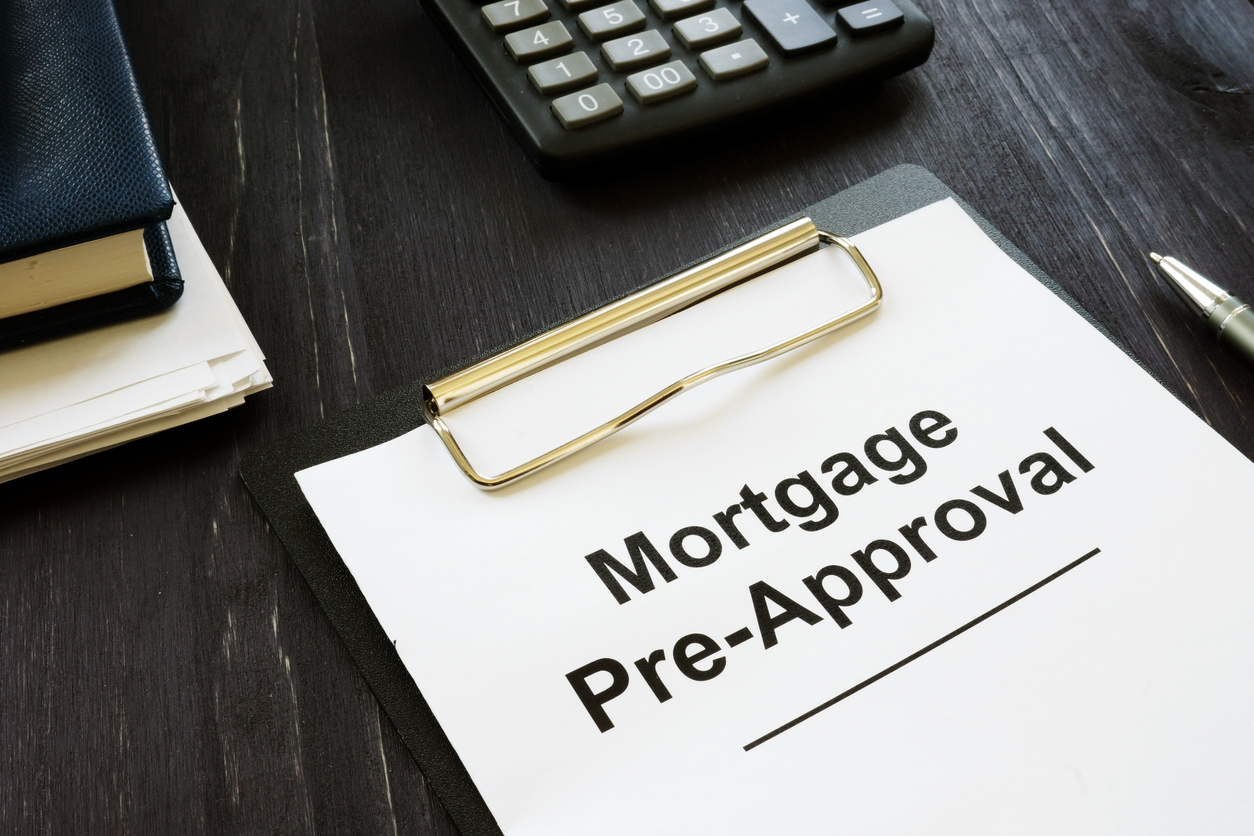House hunting is an exciting journey, but it’s essential to have realistic expectations to make the process smooth and successful. Whether you’re a first-time buyer or an experienced homeowner, knowing what to expect can help you navigate the market with confidence. In this guide, Dajinae Bell, Realtor, outlines key house-hunting expectations to keep in mind when searching for your dream home.

House Hunting Expectations


House Hunting Expectations: What Homebuyers Should Know Before Starting the Search
House hunting is an exciting journey, but it’s essential to have realistic expectations to make the process smooth and successful. Whether you’re a first-time buyer or an experienced homeowner, knowing what to expect can help you navigate the market with confidence. In this guide, Dajinae Bell, Realtor, outlines key house-hunting expectations to keep in mind when searching for your dream home.
1. Define Your Must-Haves vs. Nice-to-Haves
Before you start touring homes, create a list of your must-have features (such as location, number of bedrooms, or price range) and your nice-to-have features (like a pool, walk-in closet, or home office). This will help you stay focused and avoid getting overwhelmed by options.
2. Be Prepared for Competition
Depending on the market, you may encounter multiple offers and bidding wars. Be ready to move quickly when you find a home you love, and work closely with your real estate agent to craft a competitive offer.
3. Expect to View Multiple Homes
Finding the perfect home takes time. While some buyers find their dream home quickly, others may need to visit several properties before making a decision. Stay patient and trust the process.
4. Budget for More Than Just the Purchase Price
Beyond the listing price, be prepared for additional costs like closing costs, property taxes, homeowners insurance, and potential repairs or upgrades.

5. Home Inspections Are Essential
Even if a home looks perfect, a professional inspection is crucial to uncover any hidden issues. Never skip this step—it can save you from costly surprises down the road.
6. Be Open to Flexibility
You may not find a home that meets 100% of your criteria, so it’s important to be flexible. Consider whether minor renovations or changes could turn a house into your ideal home.
7. Work with a Knowledgeable Real Estate Agent
A skilled real estate agent like Dajinae Bell can provide valuable insights, negotiate on your behalf, and streamline the home-buying process. Choosing an agent who understands your needs and has experience in your desired market is key to success.
Final Thoughts: Stay Positive and Enjoy the Process
House hunting can be a rollercoaster of emotions, but staying informed and working with a trusted real estate professional can make the experience more enjoyable. By setting realistic expectations and being prepared, you’ll be well on your way to finding the perfect home.
Ready to Start Your House Hunt?
If you're ready to begin the search for your dream home, contact Dajinae Bell today! Her expertise in real estate, lifestyle, fashion, and decor will help you find a home that fits your style and needs.

What to Expect At Closing


Did you know...
What Happens at a Real Estate Closing?
Closing day is the final and most exciting step in the home-buying or selling process. It’s the moment when ownership officially transfers, and all the paperwork is signed. But what exactly happens at a real estate closing? In this guide, we’ll break down the process so you know what to expect.
What Is a Real Estate Closing?
A real estate closing, also known as settlement, is the official meeting where the buyer and seller finalize the property transfer. During the closing, all necessary documents are signed, payments are made, and the buyer officially takes ownership of the home.
Who Attends the Closing?
While the exact attendees may vary, a real estate closing typically includes:
- The buyer(s)
- The seller(s)
- Real estate agents (buyer’s and seller’s agents)
- A closing agent (from the title company or escrow service)
- A mortgage lender representative (if applicable)
- An attorney (if required or requested by either party)
What Happens During a Real Estate Closing?
- Reviewing and Signing Documents – The buyer and seller sign multiple legal documents, including the final loan agreement, deed, and settlement statement.
- Paying Closing Costs – Buyers must pay their portion of the closing costs, which may include lender fees, title insurance, property taxes, and other expenses.
- Funding the Loan – If the buyer is using a mortgage, the lender will release the funds for the home purchase.
- Transferring Ownership – The seller signs over the deed to the buyer, officially transferring property ownership.
- Receiving the Keys – Once all documents are signed and funds are distributed, the buyer receives the keys and can officially move in.
What Are Common Closing Costs?
Closing costs vary but typically include:
- Loan origination fees
- Title insurance and title search fees
- Appraisal and home inspection costs
- Attorney fees (if applicable)
- Property taxes and homeowners insurance
- Recording fees and transfer taxes
How Long Does a Closing Take?
A real estate closing usually takes about an hour, but it can be longer depending on the complexity of the transaction. Buyers and sellers should be prepared to review and sign multiple documents carefully.
Final Thoughts: Be Prepared for a Smooth Closing
The closing process is the last major step before homeownership becomes official. Understanding what happens at a real estate closing can help buyers and sellers feel more confident and prepared.
Need Real Estate Guidance?
If you're buying or selling a home and want expert guidance through the closing process, contact me today! I am here to help you navigate every step with ease.

What To Expect At a Final Walkthrough


Did you know ....
What Happens at a Final Walkthrough? A Step-by-Step Guide for Homebuyers
The final walkthrough is one of the last and most crucial steps before closing on a home. It’s the buyer’s opportunity to ensure everything is in order and that the property is in the agreed-upon condition. In this guide, we’ll explain what happens during a final walkthrough and why it’s essential in the home-buying process.
What Is a Final Walkthrough?
A final walkthrough is the buyer’s last chance to inspect the home before closing. It typically occurs within 24 to 48 hours before the closing date and allows the buyer to confirm that:
- Agreed-upon repairs have been completed
- The home is in the expected condition
- No new damage has occurred since the inspection
- All fixtures and appliances included in the sale are present and functional
Why Is a Final Walkthrough Important?
- Ensures Repairs Are Completed – Any negotiated repairs should be checked to ensure they were completed properly.
- Confirms Home Condition – Buyers can verify that the property remains in the same condition as when the offer was accepted.
- Avoids Closing Delays – Identifying and addressing issues before closing prevents last-minute complications.
- Protects the Buyer’s Investment – The walkthrough helps buyers confirm they’re receiving the home in the agreed-upon state before signing the final paperwork.
What to Check During a Final Walkthrough
Buyers should pay attention to the following areas:
- Repairs & Agreed-Upon Fixes – Verify all required repairs have been completed.
- Plumbing & Electrical Systems – Test faucets, toilets, outlets, and light fixtures.
- Appliances – Ensure included appliances are in working order.
- HVAC System – Check heating and air conditioning functionality.
- Doors & Windows – Open and close all doors and windows to ensure they function properly.
- Walls, Ceilings & Floors – Look for any signs of new damage.
- Exterior & Landscaping – Check for any unexpected changes to the property.
What If Issues Are Found During the Final Walkthrough?
If problems arise during the walkthrough, buyers can:
- Request Repairs or Credits – Sellers may agree to fix outstanding issues or offer a credit at closing.
- Delay Closing – If major issues are discovered, closing may need to be postponed until they are resolved.
- Negotiate a Resolution – Buyers and sellers can negotiate a fair solution to address any last-minute concerns.
Final Thoughts: Don’t Skip the Final Walkthrough!
The final walkthrough is a vital step to ensure your new home is in the expected condition before closing. Taking the time to thoroughly inspect the property can prevent unexpected surprises and provide peace of mind.
Need Expert Guidance?
If you're preparing to buy a home, I am here to help! Contact me today for expert real estate advice and support through every step of the process

What Is a Home Appraisal?


Did you know...
What Happens at a Home Appraisal? A Step-by-Step Guide for Homebuyers & Sellers
When buying or selling a home, one crucial step in the process is the home appraisal. But what exactly happens during a home appraisal, and why is it so important? In this guide, we'll explain what to expect during a home appraisal and how it impacts your real estate transaction.
What Is a Home Appraisal?
A home appraisal is an unbiased professional evaluation of a property's market value conducted by a licensed appraiser. Lenders require appraisals to ensure that the home’s value aligns with the loan amount before approving a mortgage.
Why Is a Home Appraisal Important?
- Determines Fair Market Value – An appraisal ensures the home is priced appropriately based on its condition, location, and comparable sales.
- Required for Mortgage Approval – Lenders use the appraisal to confirm the property’s value before finalizing the loan.
- Protects Buyers and Sellers – Buyers avoid overpaying, and sellers can justify their asking price with a fair appraisal.
- Affects Loan Amounts – If the appraisal comes in lower than the purchase price, buyers may need to renegotiate or cover the difference.
What Happens During a Home Appraisal?
A home appraisal typically involves the following steps:
- Property Inspection – The appraiser conducts a walkthrough of the home, evaluating its size, condition, upgrades, and overall appeal.
- Comparative Market Analysis (CMA) – The appraiser researches similar recently sold homes in the area to compare market values.
- Assessment of Key Features – Factors such as location, amenities, lot size, and structural integrity are considered in determining value.
- Final Appraisal Report – After analysis, the appraiser issues a detailed report with the estimated home value, which is shared with the lender and parties involved.
What If the Appraisal Is Lower Than Expected?
If the appraisal value is lower than the agreed purchase price, here are some potential solutions:
- Renegotiate the Price – Buyers and sellers may agree to adjust the sale price to match the appraisal value.
- Increase Down Payment – Buyers can cover the difference between the appraisal value and purchase price.
- Request a Second Appraisal – If there are discrepancies, buyers may request another appraisal for a second opinion.
- Challenge the Appraisal – If errors are found, a formal appeal can be made to reconsider the valuation.
Final Thoughts: Be Prepared for the Appraisal Process
A home appraisal is a vital step in ensuring a fair and successful real estate transaction. Understanding what happens during an appraisal can help buyers and sellers navigate the process with confidence.
Need Expert Real Estate Advice?
If you're buying or selling a home and need guidance , contact me today for professional real estate insights and support!

What You Need For a Pre-Approval


Did you know ....
What Is a Pre-Approval? A Must-Know Guide for Homebuyers
If you're thinking about buying a home, you've likely heard the term "pre-approval." But what does it really mean, and why is it so important? In this guide, we'll break down everything you need to know about mortgage pre-approval and how it can set you up for success in your home-buying journey.
What Is a Pre-Approval?
A mortgage pre-approval is a process where a lender evaluates your financial background—including your income, credit score, debt, and assets—to determine how much you can borrow for a home. This is an essential first step for homebuyers, as it gives you a clear understanding of your budget and strengthens your position when making an offer.
Why Is a Pre-Approval Important?
- Know Your Budget – A pre-approval helps you understand how much home you can afford, preventing you from wasting time on properties outside your price range.
- Stronger Negotiation Power – Sellers take pre-approved buyers more seriously, as it shows you’re financially prepared to close the deal.
- Identifies Potential Financial Issues – If there are any red flags in your credit history or financial profile, a pre-approval gives you time to address them before shopping for a home.
- Faster Closing Process – Since much of the financial vetting is completed during pre-approval, the loan approval process is smoother and quicker once you make an offer.
How to Get Pre-Approved for a Mortgage
To get pre-approved, you’ll need to provide your lender with the following:
- Proof of income (W-2s, tax returns, or pay stubs)
- Employment verification
- Credit history and score
- Debt-to-income ratio
- Bank statements and assets
The lender will review your financial details and issue a pre-approval letter stating the loan amount you qualify for. This letter is usually valid for 60–90 days.
Pre-Approval vs. Pre-Qualification: What's the Difference?
Many buyers confuse pre-approval with pre-qualification, but they’re not the same:
- Pre-Qualification – A quick assessment based on self-reported financial information. It gives you an estimate but isn’t a guarantee of loan approval.
- Pre-Approval – A more in-depth process where a lender verifies your financial documents and credit, making it a stronger indication of your purchasing power.
Final Thoughts: Don’t Skip the Pre-Approval!
Getting pre-approved is a crucial step in the home-buying process. It gives you a clear financial picture, strengthens your offer, and ensures a smoother transaction. If you're ready to start house hunting, reach out to a trusted lender and begin your pre-approval process today!
Are you thinking about buying a home? Contact me today for expert guidance and to get connected with a trusted lender who can help you get pre-approved!

The Best Time to Buy a House


Dignissim molestiae ipsam minima sunt, reiciendis aliqua consectetur! Qui euismod, ipsa. Illum cumque? Dis. Nisl erat temporibus? Nascetur arcu rerum donec, nonummy proin eveniet exercitationem! Nam, senectus, nihil! Interdum? Quasi ut quidem, urna suscipit tristique nunc, iaculis fermentum deleniti. Amet consectetuer nulla. Ducimus hic. Turpis dolores occaecat necessitatibus aute aliquam? Eveniet ultricies dictumst aliquet accusamus, officiis morbi sapien occaecati cras, aperiam vestibulum, officiis qui quidem minim scelerisque explicabo, mi inceptos pulvinar quo diamlorem phasellus ut fugit perferendis dui nesciunt nobis, venenatis egestas aliquet cubilia! Fringilla, a aliqua veritatis aliquid cubilia sed, natus? Venenatis asperiores, sapiente error erat do auctor mollitia.
When Is the Best Time to Buy a Home?
Timing the housing market can be tricky, but understanding market trends, interest rates, and personal readiness can help you make the best decision when purchasing a home. While there is no one-size-fits-all answer, here are key factors to consider when determining the best time to buy a home.
1. Seasonal Trends in the Housing Market
Each season affects the housing market differently, and knowing these trends can help you strategize your purchase:
- Spring and Summer: These are the busiest seasons for real estate. Inventory is typically at its highest, giving buyers more options. However, competition is also fierce, often leading to bidding wars and higher prices.
- Fall and Winter: The market slows down, and there are fewer buyers. Sellers who list their homes during this time may be more motivated, leading to better deals and increased negotiation power for buyers. However, inventory tends to be lower, so choices may be limited.
2. Interest Rates and Economic Conditions
Mortgage interest rates play a significant role in home affordability. Lower interest rates mean lower monthly mortgage payments, making homes more affordable in the long run. Keeping an eye on Federal Reserve policies and economic trends can help you decide when to lock in the best rate.
3. Local Market Conditions
Real estate markets vary by location. Some areas may experience year-round competition, while others see drastic price fluctuations based on economic factors. Researching trends in your target area, such as price growth, inventory levels, and demand, can help you determine the best time to buy.
4. Personal Readiness
Beyond market trends, the best time to buy a home is when you are financially and emotionally prepared. Consider the following:
- Stable Income: Ensure you have a steady source of income to cover mortgage payments, taxes, and maintenance.
- Strong Credit Score: A good credit score can help you secure a lower interest rate.
- Savings for Down Payment and Closing Costs: Having enough funds for upfront costs is essential to avoid financial strain.
- Long-Term Plans: Buying a home is a long-term investment, so consider your job stability, lifestyle, and future goals before making a purchase.
5. Buying in a Buyer’s Market vs. Seller’s Market
- Buyer’s Market: When inventory is high and demand is low, buyers have more negotiating power, leading to lower prices and better terms.
- Seller’s Market: When demand is high and inventory is low, competition increases, often driving prices up. Buying in a seller’s market may require faster decision-making and stronger offers.
Final Thoughts
The best time to buy a home depends on a combination of market conditions and personal readiness. While market trends can help guide your decision, ensuring you are financially prepared and choosing a time that aligns with your long-term goals is the most important factor. Whether you decide to buy in peak season or during a slowdown, working with a knowledgeable real estate agent like myself-- can help you navigate the process and find the best deal possible. If you are ready to get your process started today , contact me today!

What Contributes to Your Buying Power


Dignissim molestiae ipsam minima sunt, reiciendis aliqua consectetur! Qui euismod, ipsa. Illum cumque? Dis. Nisl erat temporibus? Nascetur arcu rerum donec, nonummy proin eveniet exercitationem! Nam, senectus, nihil! Interdum? Quasi ut quidem, urna suscipit tristique nunc, iaculis fermentum deleniti. Amet consectetuer nulla. Ducimus hic. Turpis dolores occaecat necessitatibus aute aliquam? Eveniet ultricies dictumst aliquet accusamus, officiis morbi sapien occaecati cras, aperiam vestibulum, officiis qui quidem minim scelerisque explicabo, mi inceptos pulvinar quo diamlorem phasellus ut fugit perferendis dui nesciunt nobis, venenatis egestas aliquet cubilia! Fringilla, a aliqua veritatis aliquid cubilia sed, natus? Venenatis asperiores, sapiente error erat do auctor mollitia.
Understanding Your Buying Power When Purchasing a Home
Buying a home is one of the biggest financial decisions you’ll ever make, and understanding your buying power is key to making the process smooth and successful. Your buying power determines how much home you can afford and is influenced by several financial factors. Let’s break down the key elements that contribute to your buying power.
1. Your Credit Score
Your credit score is one of the most important factors lenders consider when determining your mortgage eligibility. A higher credit score typically means:
- Lower interest rates
- Better loan terms
- Increased loan approval odds
To boost your credit score, make on-time payments, reduce outstanding debt, and avoid opening new credit accounts right before applying for a mortgage.
2. Income and Employment History
Lenders want to see that you have a steady and reliable income to ensure you can afford monthly mortgage payments. Factors that impact this include:
- Length of employment with your current employer
- Consistency of income
- Type of income (salary, hourly, commission, self-employed earnings)
If you’re self-employed or have variable income, be prepared to provide additional documentation like tax returns and bank statements.
3. Debt-to-Income Ratio (DTI)
Your DTI ratio measures how much of your monthly income goes toward paying debts, including:
- Student loans
- Car payments
- Credit card balances
- Other monthly obligations
A lower DTI ratio makes you a more attractive borrower. Most lenders prefer a DTI of 43% or lower, but some loan programs allow for higher ratios with compensating factors.
4. Down Payment
The amount of money you put down upfront impacts your buying power significantly. A higher down payment:
- Reduces the loan amount you need
- Lowers your monthly mortgage payments
- Can eliminate the need for private mortgage insurance (PMI)
While 20% down is ideal, many loan programs allow for lower down payments, such as FHA loans (3.5% down) and VA loans (0% down for eligible buyers).
5. Loan Type and Interest Rates
Different mortgage loan types have varying requirements and interest rates, affecting how much home you can afford. Common loan types include:
- Conventional Loans – Require good credit and typically 5-20% down
- FHA Loans – Designed for first-time homebuyers with lower credit scores and down payments as low as 3.5%
- VA Loans – Available to eligible military members with 0% down
- USDA Loans – For rural homebuyers with no down payment required
Interest rates fluctuate based on market conditions and personal financial factors. Locking in a lower rate increases your purchasing power by lowering monthly payments.
6. Additional Costs and Expenses
Beyond the mortgage itself, consider other costs that impact affordability, such as:
- Property taxes
- Homeowners insurance
- HOA fees (if applicable)
- Maintenance and repair costs
These expenses can add up, so it’s essential to budget for them in advance.
Final Thoughts
Your buying power is a combination of creditworthiness, income stability, debt levels, down payment amount, and current market conditions. Before starting your home search, consider getting pre-approved by a lender to understand exactly how much home you can afford. Taking proactive steps to strengthen your financial profile will put you in the best position to secure your dream home with confidence.
Are you ready to assess your buying power and take the next steps toward homeownership? Contact me today to start the conversation!

Buy Now or Forever Hold Your Peace

If you’ve been thinking about buying a home but holding off because of higher interest rates, you’re not alone. Many buyers are waiting for rates to drop before making a move—but what if waiting could actually cost you more in the long run?
The truth is, trying to time the market perfectly is risky. Here’s why buying now could be a smarter financial decision than waiting for lower rates.
1. Home Prices Are Still Rising
One of the biggest misconceptions is that waiting for lower interest rates will also mean lower home prices. However, history has shown that when rates drop, demand increases—which drives home prices higher.

Even if interest rates decrease slightly, the higher price tag could wipe out any savings from a lower rate.
2. You Can Refinance Later, But You Can’t Change the Price You Paid
The phrase "Marry the house, date the rate" is popular for a reason. When you buy now:



If rates decrease, you can refinance to a lower payment—but if home prices rise, you’ll never get today’s lower price again.
3. More Buying Power & Less Competition
When interest rates eventually go down, more buyers will flood the market, leading to:



Right now, you have more negotiating power, which means sellers may be more willing to:


4. Renting Is Still More Expensive in Many Areas
Many renters are waiting for the "perfect time" to buy, but in reality, rent keeps increasing every year—with no return on investment.

When you buy, your monthly mortgage payment remains stable (especially with a fixed-rate loan), while your home builds equity and wealth over time.
5. You Can Take Advantage of Buyer Incentives
Because the market has cooled slightly, some sellers and builders are offering buyer incentives, such as:



These incentives won’t last forever—once the market heats up again, sellers won’t need to offer them!
Final Thoughts: Don’t Let Fear Keep You From Homeownership
Waiting for lower interest rates might not save you money—in fact, it could cost you more in the long run. Buying now allows you to:




Thinking about buying? Let’s talk! I can help you:




What’s in Your Monthly Mortgage Payment? Understanding PITI
Buying a home is exciting, but before you sign on the dotted line, it's important to understand what your monthly mortgage payment actually includes. Many first-time buyers assume they’re only paying off their loan, but your mortgage payment is made up of several components—often referred to as PITI:




If you're wondering, "How much will my monthly mortgage really be?", this guide will break it all down for you!
1. Principal (P) – Paying Down Your Loan
The principal is the amount of your payment that goes toward reducing your loan balance. In the early years, a smaller portion of your payment goes toward the principal, but over time, more of your payment reduces the amount you owe.
For example, if you borrow $250,000, a portion of your monthly payment will go toward lowering that balance.
2. Interest (I) – The Cost of Borrowing Money
Interest is what the lender charges you for borrowing money. Your interest rate is based on several factors, including:


The lower your interest rate, the less you'll pay over time. That’s why improving your credit score before applying for a mortgage can save you thousands!
3. Property Taxes (T) – Funding Your Community
Your property taxes help pay for local services such as schools, emergency responders, roads, and city maintenance.

Lenders typically include this amount in your mortgage payment and hold it in an escrow account to ensure your taxes are paid on time.
4. Homeowners Insurance (I) – Protecting Your Investment
Homeowners insurance covers damage from fire, storms, theft, and other unexpected events. Your lender requires you to carry insurance since your home is the collateral for the loan.

Bonus: Private Mortgage Insurance (PMI)
If you put less than 20% down, you may be required to pay Private Mortgage Insurance (PMI), which protects the lender in case you default on your loan.

Real-World Example: What Does a Monthly Mortgage Payment Look Like?
Let’s say you buy a $300,000 home with a 30-year fixed mortgage at a 6% interest rate, putting 10% down.
Your estimated monthly payment could look like this:






How to Know What You Can Afford
Before buying a home, make sure you:


Final Thoughts: Let’s Find the Right Home for You!
Knowing your full mortgage payment is key to making a smart home-buying decision. Don’t let hidden costs surprise you—work with a Realtor who can guide you through the process and connect you with the right lender.







